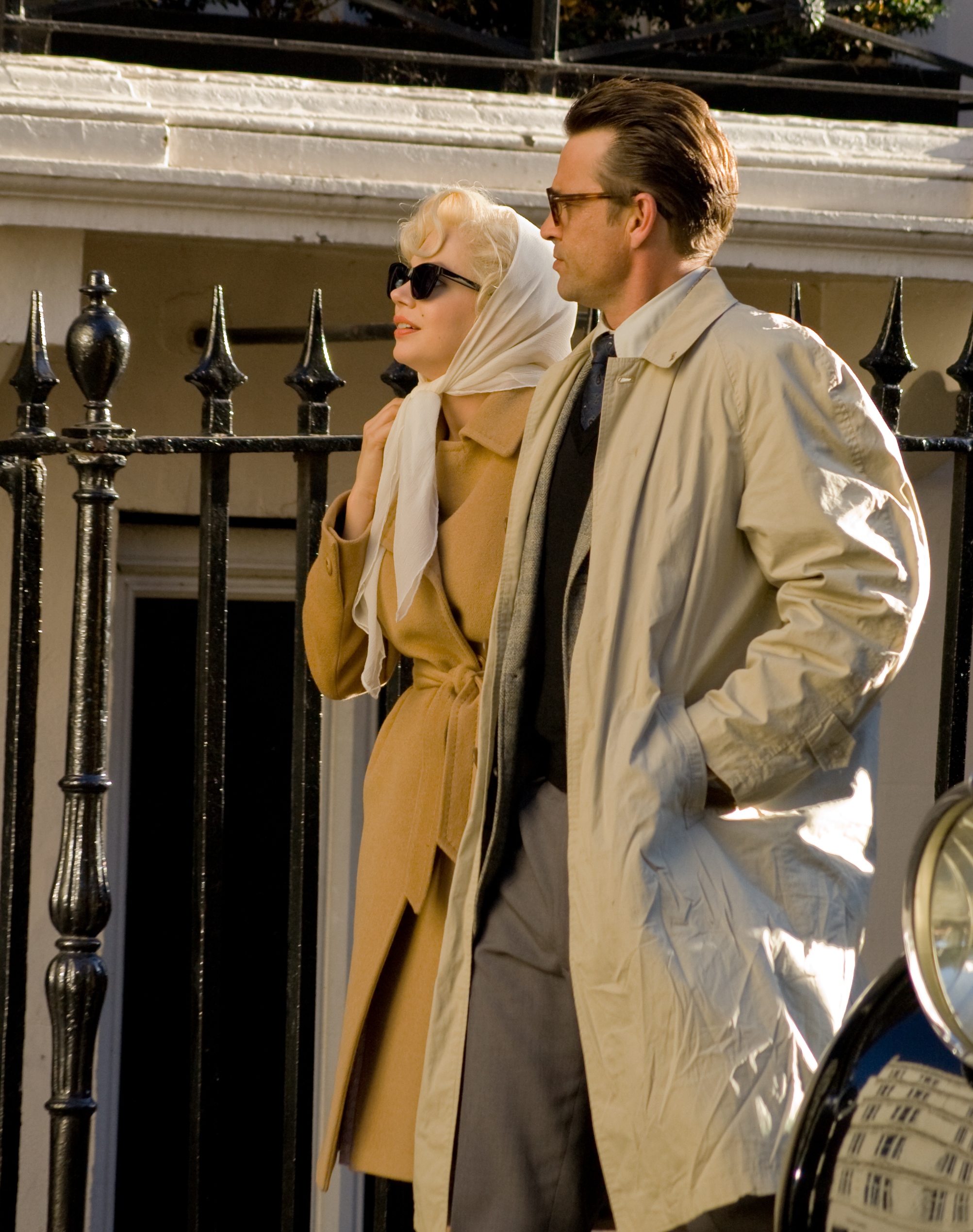My Week with Marilyn is more than just a film: it’s the latest instalment of How to Win an Oscar by Portraying a Famous Dead Person. In recent years the Academy Awards have become increasingly fixated on the idea that quality screen acting is all about slapping on wigs, prosthetic noses and crumbling dentures to portray the famous, the infamous and the downright scary.
Nicole Kidman (Virginia Woolf), Charlize Theron (Aileen Wuornos), Reese Witherspoon (June Carter Cash) and Marion Cotillard (Edith Piaf) have all struck gold, along with their Majesties Helen Mirren and Colin Firth (Queen Elizabeth II and George VI). So it’s hard not to see Michelle Williams’s discreetly padded midriff and Kenneth Branagh’s fetching Olivieresque chin dimple as prime Oscar bait.
I’m a fan of Marilyn Monroe and Michelle Williams, but My Week with Marilyn comes with even more baggage than the woman once known as Norma Jeane Baker. It’s adapted from the memoirs of Colin Clark (son of British art historian Sir Kenneth Clark), and covers the pre-production and filming of The Prince and the Showgirl. In 1956 Colin (then aged 23) was hired as a “gofer” for the film’s director Laurence Olivier, but quickly fell under the spell of Monroe, whose presence was supposed to pep up this flaccid production. Despite their stellar casts, both films prove more interesting to read about than to watch.
I can’t vouch for Colin’s skills as a writer, but on-screen his character is completely dwarfed by the Olivier/Monroe relationship. Though Eddie Redmayne plays him with considerable charm, Colin is simply the well-bred ingénu caught between a theatrical legend and a cinematic juggernaut. Along with the film’s cast, he witnessed Olivier’s daily struggles to work around Marilyn’s fragility and over-reliance on her acting coach and mentor Paula Strasberg (Zoë Wanamaker).
As a story about film-making My Week with Marilyn could and should have been a spectacularly bitchy affair. Branagh revels in the campness, vanity and thinly veiled cruelty of the great Shakespearean interpreter, who was frustrated by his efforts to film a very minor Rattigan play. But despite some sparky exchanges at the beginning between Colin and producer Hugh Perceval (Michael Kitchen), director Simon Curtis and writer Adrian Hodges are — like Olivier — undone by the Monroe factor.
If you know anything about Marilyn’s career, you’ll be painfully familiar with the ill-health, prescription drug addiction and manifold insecurities that plagued her film shoots. (The documentary Marilyn Monroe: The Final Days gives a definitive account of these problems.) Perhaps I’m over-identifying here, but the fact that the central figure in this story was so deeply troubled makes it difficult to laugh at the day-to-day chaos caused by her lateness. The spectacle of a woman falling apart seems at odds with the tone of this essentially lightweight film about the clash between dowdy mid-50s Britain and Hollywood glamour.
There’s been endless discussion about the casting of Michelle Williams as Marilyn. Some people think Lindsay Lohan would have been a better choice — presumably on the basis that her life is also a well-publicised train wreck. What nonsense. There is no woman on the planet who could capture the sheer incandescence of Monroe the performer.
Williams has always struck me as a thoughtful actress who quietly draws you into the private torment of characters like Alma in Brokeback Mountain and Wendy in Wendy and Lucy. But she doesn’t set the screen alight with sheer sexual magnetism, so watching her vamping it up for “Heatwave” or charming a bunch of Etonians doesn’t deliver the same frisson as footage of the real Marilyn.
Where Williams really does impress is as Marilyn the unhappy wife of Arthur Miller (played here by Dougray Scott) and in scenes where she talks wistfully to Colin about her white baby grand piano and her parents. It’s when Marilyn languishes in bed, dishevelled and fuzzy round the edges from all those pills, that her suffering begins to feel all too real.
My Week with Marilyn is dominated by Branagh’s flamboyant Larry and the pathos of Williams’s Marilyn, but there are other enjoyable performances, too. Julia Ormond contributes a deliciously catty cameo as Vivien Leigh, peeved that she’s now too old to take the lead in her husband’s film. Downton Abbey fans will relish Jim Carter’s theatrical double take, when his sceptical pub landlord finally claps eyes on the Blonde Bombshell.
Some critics have enjoyed My Week with Marilyn almost as much as Colin revelled in his brief period as the star’s right-hand man. It’s certainly more entertaining than The Prince and the Showgirl, but it is just a cinematic snapshot rather than a biopic. As a behind-the-scenes exposé it feels unsatisfying because the movie it examines was so inconsequential.
With or without an Oscar, Michelle Williams is an outstanding actress whose choice of roles is usually impeccable. Marilyn, though, remains the ultimate movie star.












1 Pingback